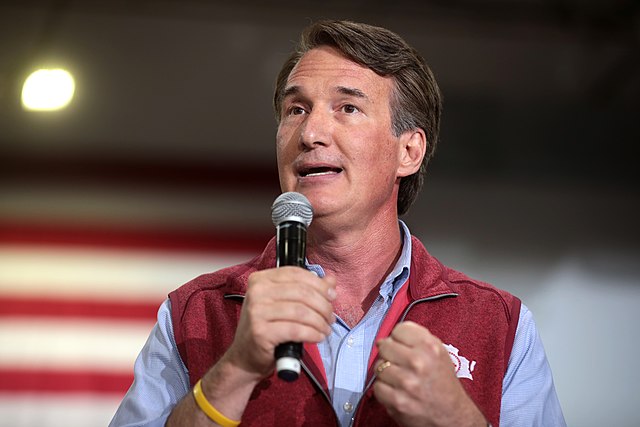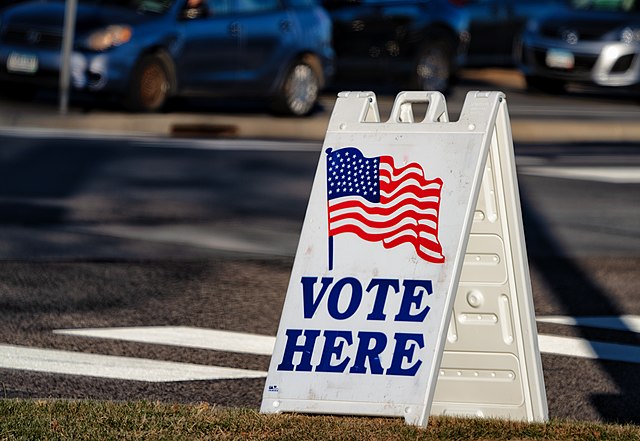With a solid week between Virginia and the November elections, the sobering up can begin in earnest. With a Republican sweep that gave Youngkin 50.59% of the vote, Sears 50.72%, and Miyares 50.36% — it is clear that rhetoric caged in the spirit of a Roman triumph is a touch overstated. With a 52-48 Republican majority in the House of Delegates, what should be clear to most conservatives is that November doesn’t seal the deal.
If we want Virginia back? We are going to have to fight for it.
Which means the level of intensity directed against heavy-handed school boards and local administrators cannot — and by all appearances, is not — going away anytime soon. Nor are the progressives shying away from a fight on this and many other questions they have forced during their four year reign of shame.
Which is why governing is going to be critically important, on precisely two fronts:
- On the regulatory side, Youngkin and Miyares will have a great deal of sway and influence to bring some stability and normalcy back to our state institutions. The solution is as old as time. If the solutions are to be hard, then they must be done quickly. If easy, then over time. Youngkin gets precisely one honeymoon; the Democrats control 5 of the 7 institutions and the bureaucracy happens to be one of them.
- On the legislative side, Sears and House Republican leadership will have to take a more measured yet firm tone. The Democrats hold a slim 21-19 margin in the Virginia Senate, with Senators Joe Morrissey (D-Henrico) and Chap Petersen (D-Fairfax) playing the role of mediator between their progressive fringe and objectively good government in the liberal tradition.
In short, Republicans cannot expect November to be a button pressed and we are all magically transported to Libertopia overnight.
Our party institutions are wobbly, our unit and district committees in sore need of restoration and rehabilitation, our volunteers requiring energy and appreciation, our information ecosystem is limited to a handful of sources (including TRS) and above all our efforts to recruit quality candidates at the state and local level in sore need of attention.
We have a lot of work to do over the next four years. Which means we should be looking at our successful unit committees — Goochland, Caroline, Henrico, James City and Rockbridge come to mind — and imitate their functions. Once upon a time we all did monthly breakfasts with speakers. Once upon a time we held monthly meetings with speakers. Maybe the cost of participation needs to go up a bit in order to separate the serious from the weekend warriors?
Yet we should start talking about this in a serious way, if for no other reason than the Democrats have stolen a now-16 year march since 2006’s election debacle and are well established in their ability to turn out a mob, manipulate the media, and have the narrative reinforced by our institutions.
The warning here — of course — is that winning elections at 50.5% is neither a mandate for change nor a permanent shift in the electorate. Biden won Virginia by 10 points last year; Biden’s popularity stands at 38% — a precipitous 15 point drop from August. Republicans only managed to recover just 9 points from Afghanistan to election day. Enough to win, but not enough to cement a mandate — and the Democrats won’t remain unpopular forever…
Well… maybe.
Republican Challenges; Democratic Conundrums
If you’re like me, then you are still lapping up the delicious breakdown of the leftist commentariat over the Virginia and New Jersey election results.
Of course, the best thing about Tuesday is watching the Democrats become entirely ditched and entirely lacking the introspection as to why. Like watching a pair of drunks plow into the mud and circling the Jeep wondering (a) how the hell that happened and (b) how are they going to get out.
To wit?
The inestimable Jim Bacon writes over at Bacon’s Rebellion how UVA’s Larry Sabato has completely missed the narrative on Critical Race Theory — namely that the reason why Governor-elect Glenn Youngkin won was not on the critique, and not on the theory, but purely on race. Bacon dismisses this entirely:
Every conservative I know personally, every conservative pundit I have read, and Glenn Youngkin himself, has made it crystal clear that an honest teaching of Virginia history means coming to terms with slavery, racism, and segregation. What we oppose is a curriculum that that imposes upon that history the doctrinaire conclusion that Virginia (and the nation) were conceived in sin, that racism is ubiquitous today, that Whites are oppressors and Blacks are victims. I don’t think most conservatives would even oppose teaching that as one possible interpretation of American history — as long as students were also exposed to the alternative view of American history as a long painful march toward the fulfillment of its founding ideals. The ultimate goal, of course, would be to teach students to think rigorously and independently.
Now I have a great deal of respect for Sabato. Smart man, brilliant at times, and certainly has earned his legacy at the University of Virginia.
Yet Bacon touches on a certain intransigence among Democrats that is worth noting and prying apart — namely that the political left simply cannot fathom how the political right might not actually be the caricature they have drawn. That maybe they should take Republicans at face value rather than smashing them into place as either neo-Nazis (as they tried to do), fascists (which seems to be the common refrain against illiberalism on the right, but oddly enough not on the left), and racists — where Virginia Republicans nominated and then duly elected the Most Diverse Ticket in Virginia History (TM).
So here’s the problem for the Democrats:
- As Rep. Abigail Spanberger (D-VA) noted in 2020, if the Democrats go further to the progressive left, they will continue to forfeit elections in the manner that they did in 2020 and in 2021. Defunding the police and Critical Race Theory are losers; telling parents they should have no role in what their children are being taught? Even worse — they said the quiet part out loud.
- Yet if the Democrats go back to their liberal roots? They have to embrace a highly unpopular Joe Biden in the midterms — a disaster that will cost Democrats the US House and US Senate. Biden’s abandonment of Afghanistan cost him his presidency. Pile on empty shelves, a raging COVID pandemic, vaccine mandates, mask mandates, inflationary pressures on energy and food, and $4.00 a gallon gasoline amidst an economic recovery that now appears to be on the rocks? Not to mention progressive anger at their own liberal leadership?
Either option costs the Democrats their only measure of self-worth: POWER.
So now they are facing an identity crisis of the worst possible sort.
Will they continue to be the party of FDR? Or will the transition in to a hodge-podge and somewhat unstable coalition of progressive ideas that few suburban Americans are going to tolerate in the endless search for equity over opportunity?
Here’s the catch: Republicans are going to have to ensure that this conversation — progressive lunacy or liberal intransigence — continues to play out on their side of the fence. Republicans have spent five years going over the conservative vs. populist debate — and whether the GOP can remain intact in a coalition of equals or whether one side destroys the other is yet to be seen (Reagan still lives).
Yet for the Democrats? It’s a Hobbesian war of all against all at this rate.
Progressives will not set down Critical Race Theory or gender ideology; liberals know that the broader American public still struggles with government mock marriages. One can hear Rep. Abigail Spanberger (D-VA) rail against the “defund the police” narrative and cries for socialism — and yet the McAuliffe campaign and their myriad of boosters never got the message. They temporized on everything and in short drove even Democratic stalwarts such as former Governor Doug Wilder into the proverbial wilderness.
That’s rough, folks.
The good news is that the infighting amongst Democrats will continue into 2022 and beyond — it’s not as if Democrats have an heir apparent for Joe Biden so long as Kamala Harris’ approval ratings are in the upper-20s, potentially the lowest approval ratings for any VP since Aaron Burr shot Alexander Hamilton.
Virginia Democrats have more than just their own NOVA-centric problems to face against a rural and suburban backlash; the minority voters they expect and demand to stay in line are starting to break ranks. Sears and Miyares have shown openings, and Virginia Republicans are keen — even hungry — to reincorporate black and Hispanic voices in our party leadership infrastructure (if for no other reason than opportunity and freedom are why the Republican Party even exists in the first place).
The trick for Republicans will be the investment in infrastructure — unit committees, information ecosystem, quick hard fixes on the big things and slow deliberate fixes on the easy things — which are all going to be so critical on Day One.
Eyes up and ears open, my friends.






